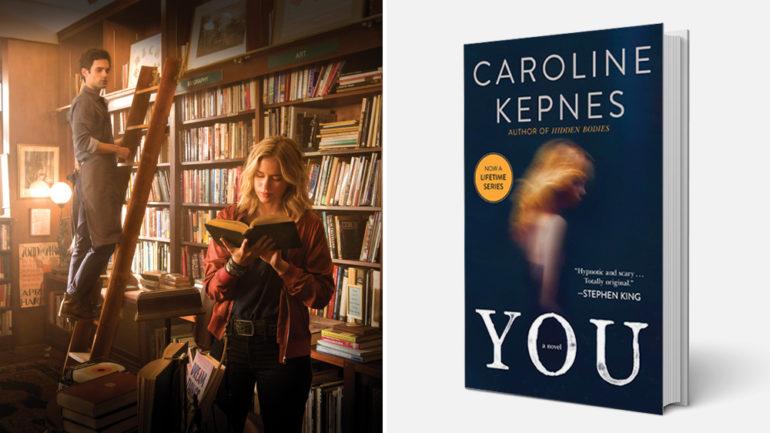‘You’ Boss Breaks Down Adapting Joe Goldberg’s Gaze for the Small Screen
By Danielle Turchiano
LOS ANGELES (Variety.com) – When Sera Gamble and Greg Berlanti sat down to co-write the pilot of “You,” based on Caroline Kepnes’ novel of the same name, the first decision they made, Gamble says, was to start the story in the same place as the book — inside protagonist Joe Goldberg’s head as he first catches sight of his soon-to-be obsession Beck in the bookstore where he works. “That inner monologue was the key to the whole thing,” Gamble explains. “The voice of the entire novel is the second person, intimate monologue of Joe’s true thoughts, and in the show, ’re experiencing his behavior and how he talks to everyone in the outside world, and it becomes even more about the friction between what he is saying and what he is doing.”
Making the Male Gaze
The first word of Kepnes’ novel is literally “You,” as Joe narrates seeing Beck for the first time, well before he knows her name, describing what he observes, as well as what he presumes, based on the way she is dressed and how she carries herself. And although the show would eventually dig deeper with Beck, it opens on a shot of her through Joe’s eyes as well. Similarly, Gamble and Berlanti fell in love with certain lines and references from Kepnes’ story, such as the specific detail of the fiction section of “F through K,” and kept them in what became Joe’s opening voiceover.
“It needed to be clear from the very outset that Joe is extremely literary and very well-read and that he is sort of Sherlock Holmes when he looks at you,” Gamble says.
Where they saw room to make changes, though, was in removing references to Beck being “embarrassed to be a good girl” so that Joe wouldn’t immediately come off as a guy who just “looks at every woman and judges her as a virgin or a slut,” Gamble notes.
Additionally, details such as the fact that Beck was wearing a sweater and jeans in the scene in the book just didn’t work for the show’s setting or actor, so they switched the wardrobe, including adding “jangly bracelets,” which stand out to Joe.
“Here is somebody that’s beautiful to him and he is seeing things about her clothes that seem to be more engineered for comfort, but then little aspects that give him a clue that she wants to be looked at,” Gamble says.
Reconsidering Romance
Although book readers would know just how dark Beck’s fate was after getting involved with Joe, Gamble took great care not to make it so obvious from the jump in the show.
“In order to make the structure of the episode work for the TV show, that first scene needs to positively function as a pure romantic comedy scene. It’s a meet-cute and it shouldn’t feel creepy,” she says. Before they could subvert certain tropes in the genre, they had to deliver them recognizably, she adds.
“We even got some early notes that in the first five minutes of the show you can’t really tell where it’s going. But to me, that was the thesis of the whole show: You can’t really tell. So if this feels like a romantic comedy to you, let’s look at other things that look like a romantic comedy to you and non-judgmentally admit to one another that we enjoy stories about men who transgress and take away agency and save the day by maybe even killing people. It was really, really important to us to preserve the idea that this was two young, good-looking people in a bookstore who maybe have some stuff in common — until you push into his eyes at the end of that scene and you’re like, ‘Wait a minute…’”

